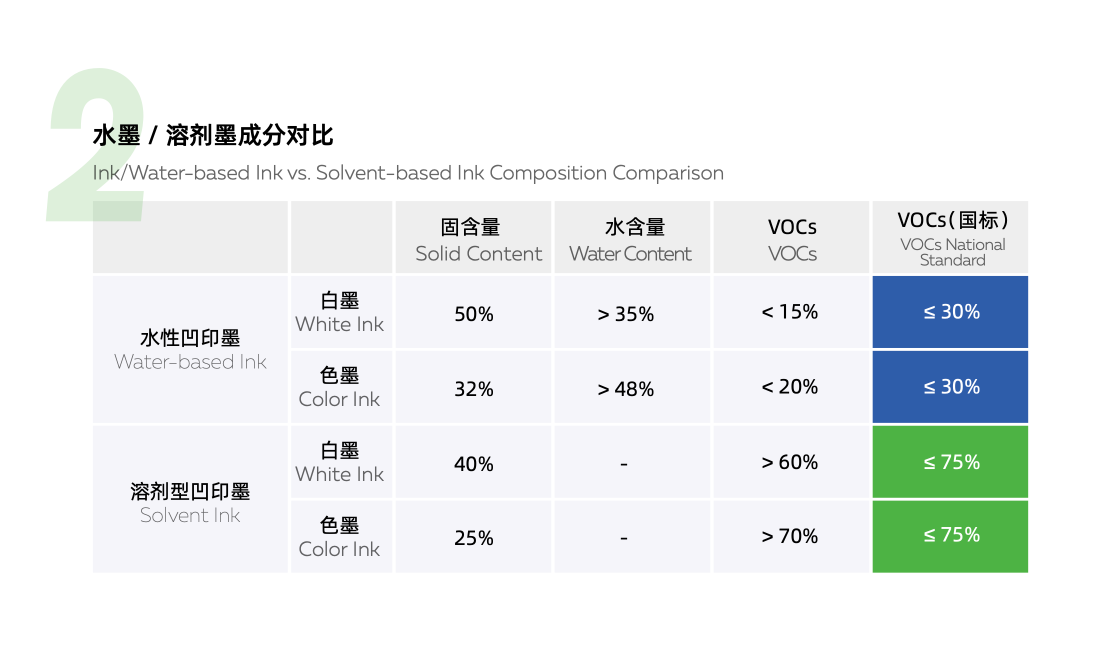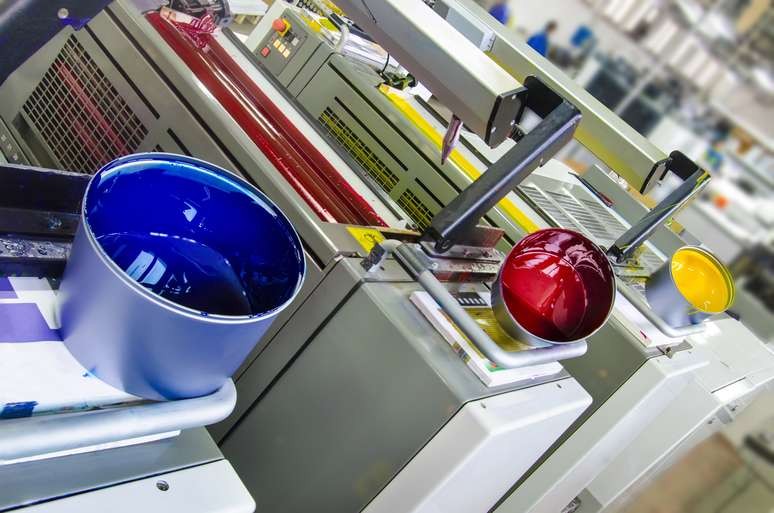Introduction

Water-based adhesives and inks have been on the rise in recent years, revolutionizing the way we think about bonding and printing. With a focus on sustainability and performance, these technologies are gaining traction across various industries.
The Rise of Water-Based Adhesives and Inks
In an era of environmental consciousness, water-based adhesives have emerged as a game-changer, offering a safer alternative to traditional solvent-based options. Similarly, water-based inks make waves in the printing world, providing vibrant colors without harmful chemicals.
In addition to being safer for the environment, water-based adhesives and inks also improve worker safety. With reduced levels of volatile organic compounds (VOCs), these products create a healthier work environment by minimizing exposure to harmful chemicals. This benefits the employees using these materials and contributes to a more sustainable and responsible manufacturing process.
Environmental Benefits of Water-Based Technologies
The shift towards water-based adhesives and inks is driven by their eco-friendly nature. They reduce volatile organic compounds (VOCs) and minimize environmental harm, making them an attractive choice for businesses aiming to reduce their carbon footprint.
Water-based technologies also offer improved safety for workers in various industries. Unlike solvent-based adhesives and inks, water-based alternatives do not pose the same fire and explosion risks, making them safer for manufacturing environments. This not only reduces the likelihood of workplace accidents but also enhances employees' overall peace of mind.
Advantages for Various Industries
Water-based technologies are becoming increasingly popular across many industries due to several key advantages:
- Improved Worker Safety: Water-based technologies often eliminate or significantly reduce exposure to harmful solvents, creating a safer work environment.
- Enhanced Product Quality: Water-based solutions can produce more consistent and reliable results, improving overall product quality.
- Regulatory Compliance: With stricter environmental regulations, water-based technologies can help businesses meet these requirements more efficiently.
- Cost-Effective Solutions: They often require less maintenance and have a longer shelf life than traditional solvent-based products, resulting in reduced downtime and lower replacement costs.
- Versatility: Water-based adhesives and coatings can be adapted for various applications across different industries, offering a single solution for various needs.
Water-based technologies provide compelling benefits for businesses, promoting safety, quality, and environmental responsibility while reducing costs and offering greater flexibility.
Understanding Water-Based Adhesives

Water-based adhesives are revolutionizing the industry with their eco-friendly composition and impressive performance. Unlike traditional solvent-based adhesives, water-based options contain fewer volatile organic compounds, making them safer for workers and the environment. This shift towards sustainable solutions is gaining momentum as businesses seek to reduce their carbon footprint and meet stringent regulatory requirements.
What Sets Water-Based Adhesives Apart
One of the key advantages of water-based adhesives is their ability to bond a wide range of materials, including vinyl, without compromising on strength or flexibility. Vinyl adhesive glue, in particular, benefits from the superior adhesion properties of water-based formulas, ensuring a reliable and long-lasting bond that can withstand various environmental conditions. As more industries recognize the importance of sustainable practices, the demand for water-based adhesive glue for vinyl continues to grow.
Applications and Versatility
Water-based adhesives are versatile, as they can be applied across diverse applications such as packaging, automotive assembly, construction, and more. Whether it's acrylic-based adhesive or other formulations, these adhesives offer exceptional compatibility with different substrates and materials, providing manufacturers greater flexibility in their production processes. This adaptability makes water-based adhesives a go-to choice for businesses looking to streamline operations without compromising quality.
Performance and Durability
Water-based adhesives are environmentally friendly and deliver outstanding performance and durability. Their ability to form strong bonds while maintaining resilience against moisture and temperature variations makes them ideal for demanding applications. Technological advancements drive continuous improvements in formulation and application methods, setting new benchmarks for reliability and longevity in various industries.
Exploring Water-Based Inks

When it comes to printing and packaging, water-based inks offer many benefits. They provide vibrant and long-lasting colors, making them ideal for eye-catching designs on various surfaces. Additionally, their fast-drying nature ensures efficient production processes, reducing downtime and increasing output.
Benefits for Printing and Packaging
Water-based inks are becoming increasingly popular in printing and packaging due to their environmental benefits and versatility. Here are some of the key advantages of using water-based inks:
- Versatility: Water-based inks can adhere to various materials, including paper, cardboard, and plastics, making them suitable for various printing and packaging applications.
- Sustainable Choice: Water-based inks have a lower environmental impact than traditional solvent-based ones. They contain fewer volatile organic compounds (VOCs) and harmful air pollutants.
- Safer for Workers: Water-based inks produce minimal fumes, creating a healthier and safer working environment for printing press operators.
- Vibrant Colors: Advancements in water-based ink technology have led to the ability to produce high-quality, vivid prints that are just as appealing as those created with solvent-based inks.
- Faster Drying Times: Water-based inks tend to dry faster than solvent-based inks, which can improve production efficiency by allowing for quicker turnaround times.
Water-based inks offer compelling advantages for printing and packaging companies looking for an environmentally friendly solution that doesn't compromise on quality or efficiency.
Enhanced Color and Quality
Water-based inks produce superior color vibrancy and print quality compared to solvent-based alternatives. The pigments disperse evenly, producing sharp and vivid images that catch the eye. This enhanced visual appeal is crucial for brands looking to stand out on store shelves.
Sustainability and Regulatory Compliance
In an era where environmental responsibility is paramount, water-based inks shine as they are free from harmful volatile organic compounds (VOCs) found in traditional solvent-based inks. Their compliance with strict environmental regulations makes them an attractive option for businesses aiming to reduce their carbon footprint.
Remember that water-based technologies are environmentally friendly and offer outstanding performance benefits across various industries, such as packaging, textiles, and publishing. With the increasing demand for sustainable solutions, embracing water-based adhesives and inks is not just a trend but a strategic move toward a greener future.
Key Industries Embracing Water-Based Technologies

The use of water-based adhesives has significantly risen in the packaging and labeling industry. This shift is driven by the environmental benefits and improved performance of water-based adhesives over traditional solvent-based options. Packaging and labeling companies are now turning to water-based adhesive glue for vinyl applications, as it offers a more sustainable and versatile solution for various packaging materials.
Packaging and Labeling
The textiles and apparel industry has a growing preference for water-based adhesives due to their non-toxic nature and reduced environmental impact. Manufacturers are increasingly opting for acrylic-based adhesive products that offer strong bond strength while being free from harmful chemicals commonly found in solvent-based adhesives.
Textiles and Apparel
The paper and publishing sector is also embracing water-based technologies, particularly in printing processes, where water-based inks are becoming the preferred choice. These inks' enhanced color quality and sustainability benefits make them ideal for high-quality publications while meeting regulatory compliance standards.
Overcoming Common Misconceptions

Addressing Concerns about Performance
There's a common misconception that water-based adhesives don't perform as well as traditional solvent-based options. However, modern water-based adhesives have come a long way in terms of strength and durability, making them suitable for a wide range of applications. From vinyl adhesive to acrylic-based glue, the performance of water-based adhesives is now on par with their solvent-based counterparts.
Dispelling Myths about Application and Usage
Another misconception concerns the application and usage of water-based adhesives. Some believe they are more difficult to apply or have limited uses than solvent-based options. Water-based adhesives offer versatility and ease of application, making them suitable for various materials and surfaces. Whether applying adhesive for vinyl flooring or other substrates, water-based options provide a user-friendly experience.
Comparing Environmental Footprint
One of the most significant misconceptions surrounding water-based adhesives is their environmental impact compared to traditional adhesives. Many assume that all adhesives have a negative environmental footprint, but water-based adhesives are much more sustainable and eco-friendly than their solvent-based counterparts. Comparing the environmental footprint of both options makes it clear that water-based adhesives are the greener choice for businesses and industries.
Furthermore, water-based adhesives offer a safer working environment for employees due to their low volatile organic compound (VOC) content. Workers are not exposed to harmful chemicals during the adhesive application process, reducing health risks and potential long-term effects. In contrast, solvent-based adhesives release high levels of VOCs into the air, contributing to air pollution and posing health hazards to those nearby.
The Future of Water-Based Adhesives and Inks

Innovations and Advancements
Innovations in water-based adhesives and inks are driving the industry forward. Manufacturers are investing in research to improve performance and versatility. New formulations are being developed to enhance bonding strength, durability, and resistance to various environmental conditions. As technology continues to evolve, we can expect to see even more advanced water-based adhesives and inks that meet the diverse needs of different industries.
Market Trends and Demand
The water-based adhesives and inks market is experiencing significant growth as more businesses prioritize sustainability and environmental responsibility. With increasing awareness about the harmful effects of traditional solvent-based products, there is a growing demand for eco-friendly alternatives. As a result, manufacturers are ramping up production to meet the needs of various sectors, including packaging, textiles, and publishing.
Potential for Industry Disruption
The rise of water-based technologies can potentially disrupt traditional adhesive and ink markets by offering a more sustainable and effective solution. As regulations regarding volatile organic compounds (VOCs) and other harmful chemicals become stricter, businesses are turning to water-based options as a viable alternative. This shift could fundamentally change how adhesives and inks are manufactured, used, and perceived across different industries.
Make the Switch: Practical Considerations
Water-based adhesives are revolutionizing the industry, offering a sustainable and effective alternative to traditional solvent-based options. Switching to water-based adhesive glue is a practical consideration for businesses looking to reduce their environmental impact without sacrificing performance.
When applying adhesive, it's important to consider the long-term benefits of water-based options. Not only are they environmentally friendly, but they also offer excellent adhesion and durability, making them a smart choice for various applications, including vinyl adhesive.
Water-based adhesives are also known for their versatility, making them suitable for various materials, including vinyl, paper, and fabric. This makes them a convenient option for businesses that work with multiple substrates and need a reliable adhesive solution that can be used across different applications. Additionally, water-based adhesives are easy to clean up with water, reducing the need for harsh chemical solvents and simplifying the overall maintenance process.
Embracing a Sustainable Future
Embracing water-based technologies means embracing a sustainable future for our planet. By choosing water-based adhesives over solvent-based ones, companies can significantly reduce their carbon footprint and contribute to a cleaner, greener environment for future generations.
By switching to water-based technologies, companies can also improve workplace safety for their employees. Water-based adhesives are non-toxic and emit fewer harmful fumes, creating a healthier working environment. This not only benefits employees' well-being but also reduces the risk of accidents and health issues related to exposure to solvent-based adhesives.
The Business Case for Water-Based Technologies
From an economic standpoint, there's also a strong business case for using water-based adhesives and inks. With increasing consumer demand for eco-friendly products, companies prioritizing sustainability can gain a competitive edge and enhance their brand reputation in the market.

